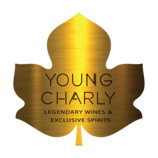Young Charly: nearly half a century of knowledge and passion for wine
Young Charly was founded in 1976 by William's father, who at the time took over a company called Old Charly. "That was actually a store that specialized in whiskey, so to create no misunderstanding, the store was renamed Young Charly. My father's name is also Karl, which with some good will, you can recognize the name Charly in (laughs). And he was young in '76, barely 26, so that worked out well too." In all these decades, Young Charly has grown into a resounding name in the Belgian wine landscape. As a proud family business, they focus mainly on the better European wines. "We always deal directly with the families behind the wineries," William explains. "They are often people we have known for decades, so these are relationships that have 'matured'. But even then, the quality of the product remains absolutely paramount for us. This also means that we do not position ourselves as a price breaker. We do not have the power nor the capital of a large supermarket chain to operate at absolute rock-bottom prices. Nor is that totally our ambition. What we also pay a lot of attention to are service and advice. For example, we deliver to your home with our own drivers and advise and assist customers in choosing their wine."
Star Restaurants
In addition to direct sales to consumers, Young Charly is also a supplier to many renowned starred restaurants. "They too naturally prefer to work with a partner who is especially committed to consistent quality," says William. "As with our other clients, these are people we have often known for years. We know their tastes and their preferences. Beware, that doesn't mean we don't innovate in our offerings. We now have just under a thousand references that we offer and yet every year we discover interesting, cool domains. Especially in France, but also in Spain and Italy. You also have to constantly keep your feelers out. From absolute top houses we can sometimes only buy 120 or 60 bottles a year. With that you can serve hope and already ten or twenty customers, you obviously don't jump far with that (laughs)." Young Charly focuses rigorously on European wine domains in its selection, and that is no coincidence. "From outside of Europe, we really only offer Chilean wines," said William. "Not that good wine is not grown outside Europe, but why make it difficult? Europe still has a huge range and excellent quality. And, as I said, it also allows us to develop very close, personal relationships with the various chateaus. Ultimately, our end customer benefits from that as well." Young Charly may be known primarily for its wine offerings, but the company's range goes much broader. "From aperitifs to digestives, we can actually provide everything," says William. "Champagnes and sparkling wines, of course, but we also have an extensive range of gin, whiskey, armagnac, port, vermouth... And we can also provide glasses and decanters, for example."
Organic Wine
To conclude, are there any trends in the wine market? And which ones are they? "There certainly are," says William. "You have, for example, the organic wines, which people started doing in the 1990s. At the time, those winemakers were declared crazy, but in the meantime it has become normal. For example, you also have the trend of sulfite-free wines that came a while ago. That's all fine, for us quality remains paramount. Just because you make an organic wine does not make it a de facto good wine. You should always keep tasting and remain critical. Ditto with Belgian wines. Certainly good wines are already being made here and, climatologically, they will get better and better as well. But the framing must also be there. Belgian agricultural laws are currently, in my opinion, totally unadapted to viticulture. We will have to wait for that before we can speak of a real breakthrough. And in the meantime, we need to separate the wheat from the chaff."



